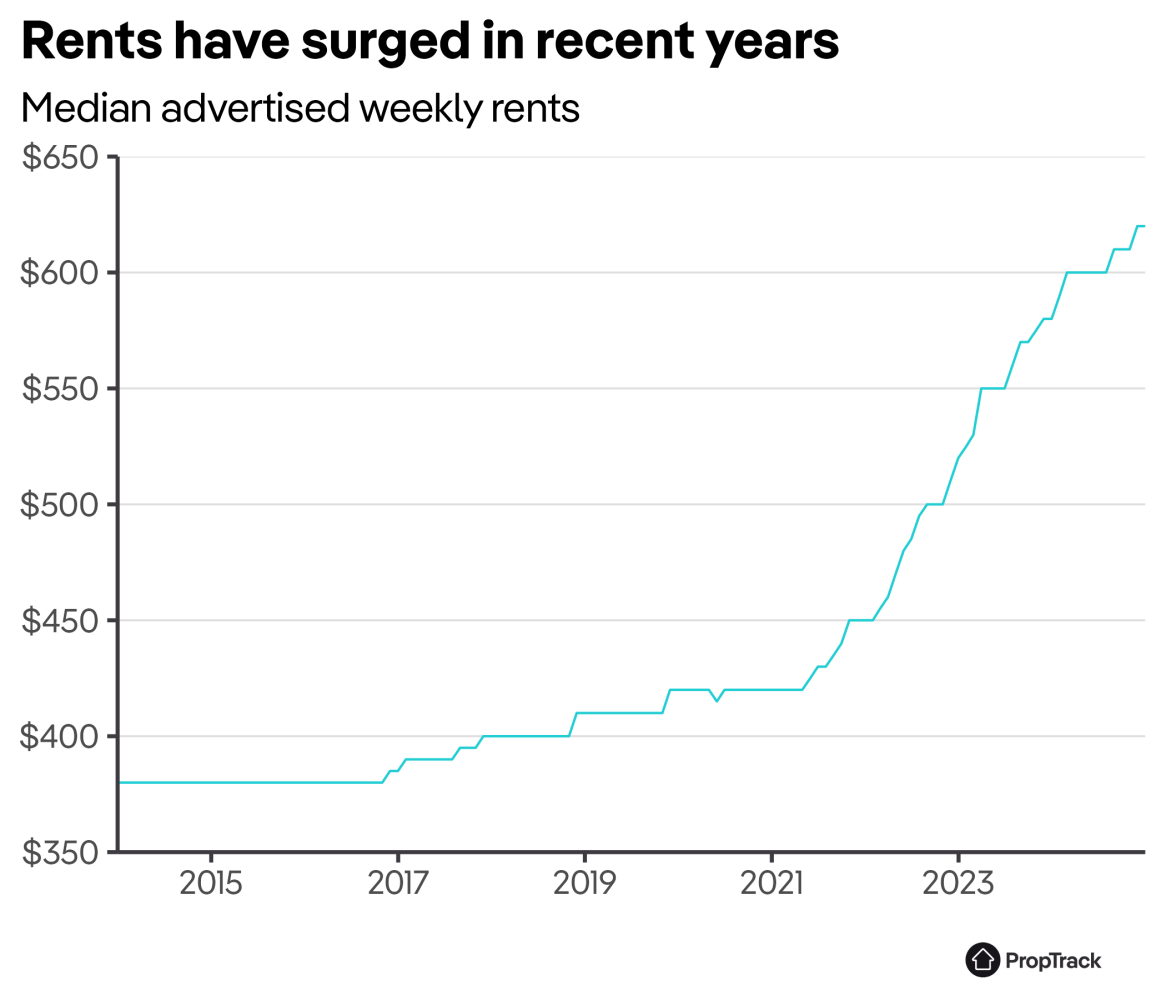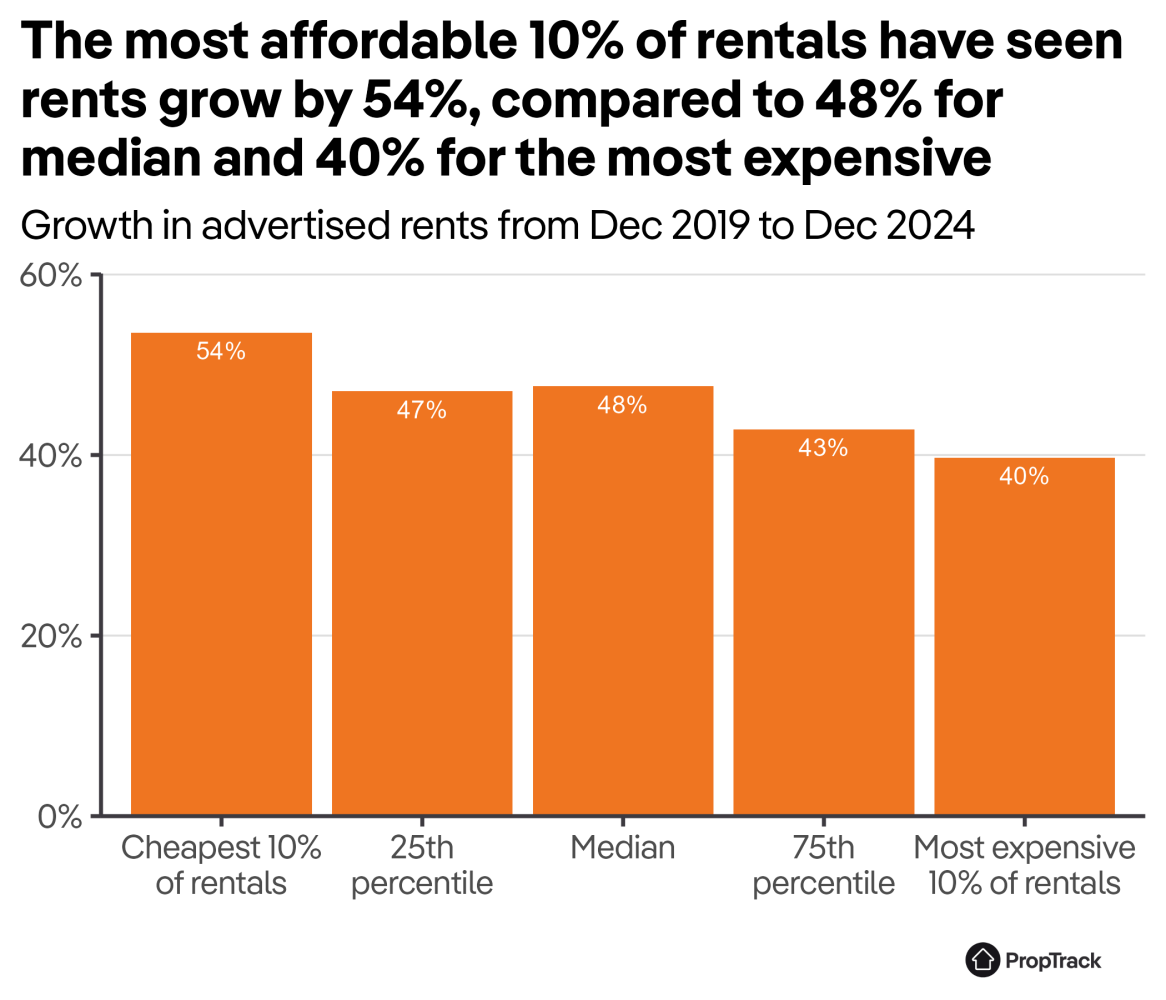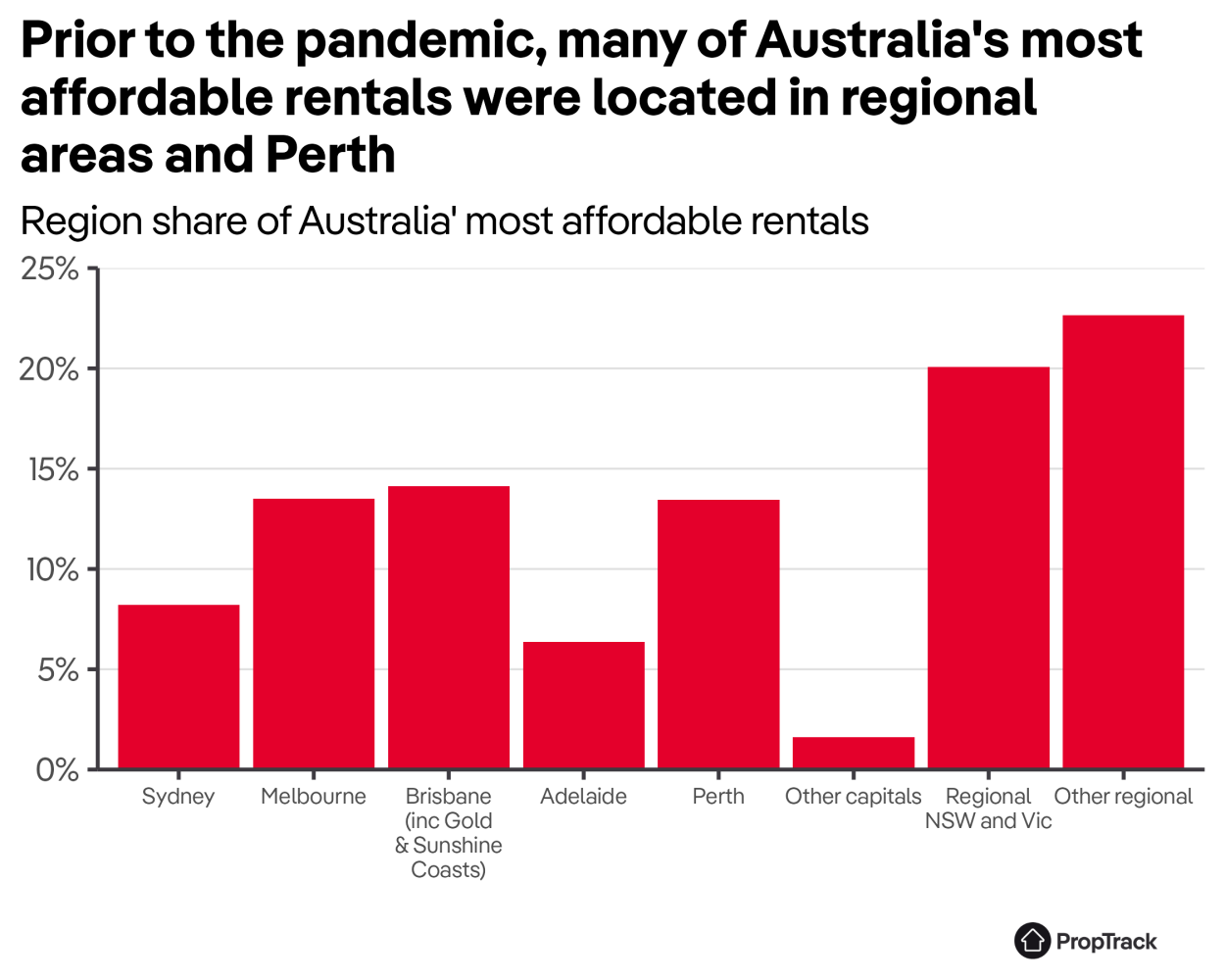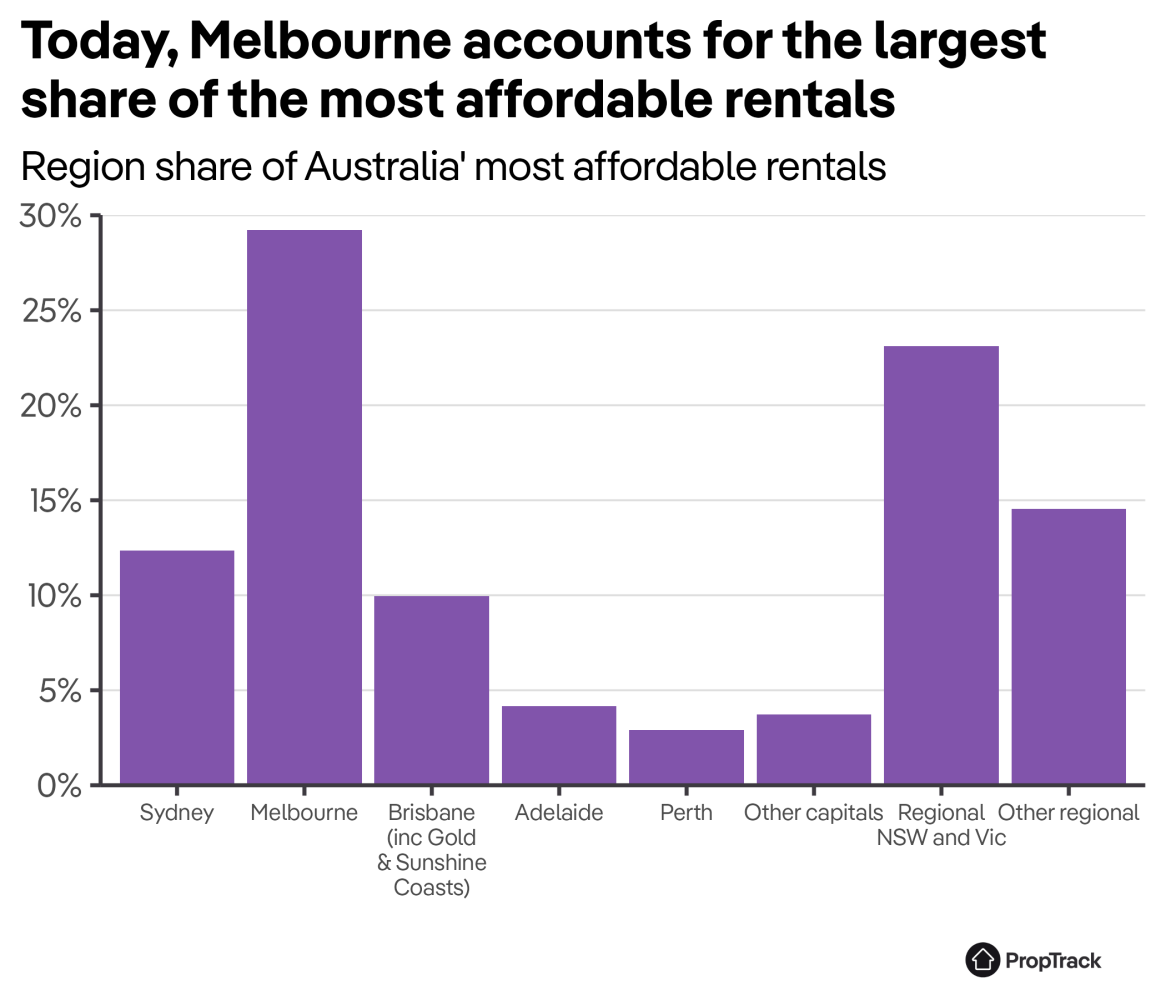

In PropTrack’s Weekly Economic Update, Angus Moore (pictured above), an economist at REA Group, shed light on the shifts in Australia’s rental market, which is showing signs of stabilisation after a period of rapid growth.
This change comes as a relief to renters who have faced increasingly challenging conditions over the past few years.
The rental market has undergone significant changes since 2019, with median advertised rents nationally experiencing a 48% increase, soaring from $420 per week to $620.

This increase is particularly pronounced at the more affordable end of the market, where rents have risen even more sharply.
“The price for a rental at the 10th percentile (the rent at which 10% of rentals across Australia are cheaper and 90% more expensive) has gone from $280 to $430 – an increase of a staggering 54%,” Moore said.

The distribution of affordable rentals across Australia has shifted notably.
In 2019, 30% of homes rented for less than $360, with a significant portion located in regional areas and cities like Perth and Adelaide, which were traditionally more affordable.

Melbourne and Sydney, despite their large rental markets, accounted for a smaller share of these affordable rentals.
However, the landscape of affordable renting has changed dramatically.
Today, the 30th percentile rental price has escalated to $530. The regions that once offered more affordable options, such as Perth, Adelaide, and Brisbane, have seen rents skyrocket, altering their affordability status.
Interestingly, Melbourne has become a hotspot for more affordable rentals, housing a larger proportion relative to its share of the overall rental market.

“Over the past six months, 29% of these more affordable rentals are in Melbourne; that’s actually more than Melbourne’s share of overall rentals (19%),” Moore said.
In contrast, Perth has seen a reversal from being overrepresented in affordable rentals to being underrepresented, PropTrack reported.
Despite the drastic increases in rent, the situation for renters is beginning to look up.
Rental availability is gradually improving, and the pace of rent growth is slowing. This trend is expected to ameliorate the conditions for renters, providing them with more options and potentially more manageable costs.
